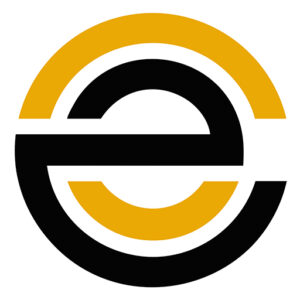 Unleashing the Power of a Dynamic Platform for Online Success
Unleashing the Power of a Dynamic Platform for Online Success
The digital age has transformed the way we interact, learn, and share information, with e-content creation at the heart of this revolution. E–content refers to any form of educational, informative, or engaging material delivered digitally through various platforms.
In this context, the importance of platforms like WordPress cannot be overstated. Understanding e-content and WordPress is crucial for anyone aiming to build a strong online presence, whether for a business, blog, or educational site. For individuals and organizations looking to enter the world of online content creation, WordPress stands as a beacon of accessibility and flexibility.
The Rise of e-Content and WordPress
As a leading content management system (CMS), WordPress empowers users to craft and manage a vast array of e-content without needing extensive technical expertise. Whether you’re building a blog, an e-store, an educational site, or any other online presence, WordPress provides the tools and features necessary for success. This article will explore the benefits of WordPress in the context of e-content creation, how it simplifies the process, and how you can harness its capabilities to create a powerful and engaging online presence.
Why WordPress Is the Ideal Platform for e-Content Creation
WordPress’s enduring popularity in the world of website creation stems from its unique combination of user-friendliness, customization options, and extensive functionality. Here are some key reasons why WordPress is the go-to platform for e-content creation and why it has remained a favourite for individuals and businesses alike.
- User-Friendly Interface for Effortless Content Management
One of the primary reasons WordPress is so widely used for e-content creation is its intuitive interface. WordPress has removed the technical complexities that often deter people from building their websites. With its drag-and-drop functionality, anyone, even those without coding experience, can easily arrange and populate their website with text, images, videos, and other multimedia content.
- Visual Editor: The platform’s built-in visual editor allows users to format text, adjust layouts, and place media seamlessly. This makes WordPress an ideal choice for people who want to focus on creating e-content without worrying about complex coding languages.
- No Coding Needed: The most significant appeal of WordPress is that it doesn’t require coding skills to get started. This is a major advantage for beginners who want to create and share their knowledge without needing a background in web development.
- A Vast Selection of Themes for Customized Design
When building e-content websites, visual appeal plays a crucial role in user engagement. WordPress offers a massive library of pre-designed themes that cater to various industries and niches. These themes are essentially the “skin” of your website, determining its overall look and feel.
- Wide Variety of Themes: From sleek business websites to creative portfolios and educational platforms, there’s a theme for every type of e-content.
- Easy Installation: Themes are simple to install and customize, allowing users to experiment with different designs without needing to write a single line of code.
- Responsive Design: WordPress themes are often mobile-friendly, ensuring that your e-content is accessible across all devices, which is critical in today’s mobile-first world.
- Plugins: Extending Functionality for Advanced Features
While themes take care of the design, plugins are the building blocks that enhance a WordPress website’s functionality. For e-content creation, WordPress plugins can be used to add advanced features like online courses, social sharing, content protection, and even monetization options.
- Learning Management System (LMS) Plugins: If you are looking to offer online training or educational resources, plugins like LearnDash or LifterLMS integrate seamlessly with WordPress to create a fully functional e-learning platform. These plugins allow you to structure your courses, add multimedia lessons, and track student progress.
- SEO Plugins: With the help of plugins like Yoast SEO, WordPress users can optimize their e-content for search engines, increasing visibility and driving organic traffic to their site.
- Social Sharing Plugins: Allow users to easily share your e-content on social media platforms, helping to increase the reach of your material.
- Monetization Plugins: If you’re looking to monetize your e-content, plugins such as WooCommerce can help you set up an e-store to sell your courses, digital products, or memberships.
- Scalability: Growing Your e-Content Website
As your e-content expands, so too will your need for scalability. WordPress offers flexibility and scalability for sites of all sizes, making it easy to grow your content library, add new features, and cater to an expanding audience.
- Handle Increased Traffic: WordPress is optimized for performance, meaning it can handle increased traffic as your website grows. This is essential for e-learning platforms or large content hubs that attract a significant number of visitors.
- Flexible Hosting Options: As your e-content grows, you can choose a hosting provider that meets the demands of your growing platform. WordPress is compatible with various hosting solutions, including shared, VPS, and dedicated servers, allowing for the necessary upgrades as your website evolves.
- SEO Optimization for Content Visibility
An important aspect of e-content creation is ensuring your content reaches the right audience. WordPress offers powerful SEO tools that allow you to optimize your website and individual posts for search engines, driving organic traffic to your site.
- Yoast SEO Plugin: This popular plugin guides you through the process of optimizing your content, including meta descriptions, titles, keywords, and readability scores. By following best practices for SEO, you can increase the likelihood that your e-content will rank higher in search results.
- Fast Load Times: Search engines like Google prioritize websites that load quickly. WordPress, when paired with the right tools and hosting, ensures fast loading times, which is crucial for improving your SEO ranking.
- Content Structure: WordPress enables you to structure your content with headings, subheadings, and internal links, making it easier for search engines to crawl and index your pages.
- Community Support and Resources
WordPress has a vast, active community that provides support, resources, and solutions to common challenges. Whether you are just starting with e-content creation or looking to enhance an existing site, there are countless forums, tutorials, and guides available to help.
- Extensive Documentation: WordPress offers comprehensive official documentation, as well as community-generated content that addresses specific questions and problems.
- Tutorials and Online Courses: There are numerous online tutorials and courses available for learning WordPress and understanding e-content creation. From beginner to advanced, these resources can guide you through building and optimizing your website.
- WordPress Meetups and Forums: Join a local WordPress meetup or participate in online forums to network with other users, share experiences, and find solutions to any issues that may arise during the e-content creation process.
The Benefits of WordPress for e-Content Creation
Now that we’ve explored some of the key features of WordPress, let’s take a closer look at how these benefits specifically apply to e-content creation. The flexibility and power of WordPress make it an ideal choice for building websites that deliver high-quality, engaging, and accessible content to a global audience.
- Ease of Use for Beginners
For anyone interested in understanding e-content and WordPress, the ease of use provided by the platform is one of its most compelling advantages. With its drag-and-drop editor, even those with no technical background can create and manage websites. WordPress removes the barriers that typically discourage non-tech-savvy users, allowing them to focus on producing and sharing e-content.
- Customization for Unique Content Delivery
No two e-learning platforms or content websites are the same, and WordPress allows for endless customization to fit your specific needs. Whether you’re delivering courses, blogs, digital products, or multimedia resources, WordPress enables you to tailor your website’s design and functionality to match your content’s goals.
- Cost-Effectiveness
WordPress itself is free, and while there are costs associated with themes, plugins, and hosting, it is still a very cost-effective option for e-content creation. Many essential plugins and themes are available at affordable prices, allowing you to build a professional-looking website without breaking the bank.
- Security for Safe Content Delivery
When delivering e-content, especially in the form of courses or digital downloads, security is paramount. WordPress takes security seriously, with regular updates and a range of security plugins available to protect your site from potential threats.
- Analytics for Performance Monitoring
WordPress integrates seamlessly with Google Analytics, providing valuable insights into your website’s performance. You can track page views, user behaviour, and conversion rates to better understand how your e-content is being consumed and make data-driven decisions to enhance user engagement.
WordPress A Powerful Tool for e-Content Creation
In conclusion, understanding e-Content and WordPress reveals how this versatile platform offers the tools and features needed for creating and delivering engaging digital content. From user-friendly design options to powerful plugins, SEO features, and scalability, WordPress provides everything you need to build a successful e-learning or content-driven website. Whether you’re a small business owner, educator, or content creator, WordPress enables you to share your expertise and knowledge with the world while offering a seamless, customizable, and cost-effective platform. With WordPress, the possibilities for e-content creation are virtually limitless.








